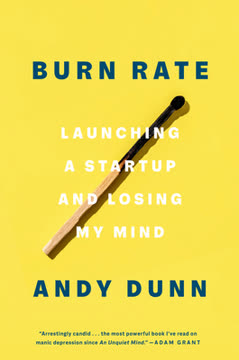Key Takeaways
1. Bipolar Disorder: A Double-Edged Sword for Entrepreneurs
My Ghost is an illness—one that can amplify human potential and seek to destroy it at the same time.
Unseen companion. Andy Dunn's "Ghost" — his bipolar disorder — was a secret companion that both fueled his entrepreneurial drive and threatened to dismantle his life. This illness, affecting 3% of the population and potentially 20% of entrepreneurs, can manifest as extreme highs (mania) and lows (depression), often going undiagnosed or unacknowledged due to profound stigma. His personal journey reveals how such a condition can be a powerful, yet perilous, force in the high-stakes world of startups.
Amplified potential. The initial stages of his illness, particularly hypomania, provided Andy with an "engine for creativity, optimism, and vision," essential traits for a startup founder. This elevated mood allowed him to work tirelessly, attract investors, and inspire teams, making him feel "gifted" and capable of achieving things others couldn't. This period of intense energy and rapid ideation was crucial in the early growth of Bonobos, his digitally native menswear brand.
Hidden liabilities. However, this "jet fuel" came with significant liabilities. The same energy that drove success could quickly spiral into full-blown mania, leading to impulsive decisions, impaired judgment, and a disconnect from reality. The book illustrates how this dual nature meant that while the illness could underpin greatness, it also constantly threatened to rip everything apart, creating a "Faustian bargain" for the entrepreneur.
2. The Profound Stigma of Mental Illness
If there was not a profound stigma around mental illness, this book would not be necessary.
Culture of silence. Andy's experience highlights the deep-seated stigma surrounding mental illness, especially in the business community which values stability and a "steady hand." For most of his professional life, his bipolar disorder felt "unspeakable," a fast track to awkward silence, closed doors, or lost opportunities. This societal pressure led him to hide his diagnosis, even from close friends and colleagues, for over sixteen years.
Generational impact. The stigma was deeply ingrained in his family history, with his paternal grandmother's mental health issues being "swept under the rug" and his grandfather, a psychiatrist, medicating her in secret. This family tradition prepared them to "bury it all," rather than confront it openly. This inherited pattern of secrecy made it harder for Andy to acknowledge his own struggles, perpetuating a cycle of denial and unaddressed pain.
Consequences of secrecy. Hiding his condition led to a "half-dead" existence, where he was "no longer fully seen, by myself or others." This secrecy prevented him from seeking consistent professional help and made him reject his diagnosis, believing it was a "one-off psychotic event." The fear of judgment and the desire to maintain an image of strength ultimately exacerbated his suffering and delayed his path to healing.
3. Hypomania: Jet Fuel with Manic Risks
The beauty of hypomania is that it’s an engine for creativity, optimism, and vision.
Elevated energy. Hypomania, a milder form of mania, served as a powerful engine for Andy's entrepreneurial endeavors. It manifested as an upbeat, wired mood, increased energy, an exaggerated sense of self-confidence, and racing thoughts, enabling him to work long hours, generate countless ideas, and relentlessly pursue fundraising. This state was crucial for the early, frenetic growth of Bonobos, allowing him to attract talent and capital with magnetic charisma.
Perilous proximity. The line between productive hypomania and destructive mania was "threadbare." While hypomania could be a "gift of relentless optimism and tenacity," it was also a "harbinger of potential doom." Unchecked, and often exacerbated by lack of sleep and substance use, this elevated state could quickly escalate into full-blown mania, leading to a complete break from reality and impulsive, dangerous behaviors.
Unpredictable swings. Even without full mania, hypomania created a "whipsawing effect of impulsiveness and poor judgment," often masked by his charisma. This made him an "unpredictable" leader, maddening and inspiring at once. His tendency to be seduced by "shiny new objects" and grand visions, often at the expense of core business focus, was a direct consequence of this mood state, highlighting the fine line between audacious entrepreneurship and delusion.
4. Co-founder Conflict as Internal Shadowboxing
I was shadowboxing my Ghost by taking aim at my co-founder.
Externalizing internal battles. Andy's intense conflict with his co-founder, Brian Spaly, became a proxy for his internal struggle with his "Ghost" – his unacknowledged mental illness. Instead of confronting his own "hole in his soul," he projected his insecurities and anger onto Spaly, creating a "personal version of Fight Club." This dynamic was a "radical act of projection," where he focused on Spaly's perceived flaws while giving himself a pass.
Incompatible visions. At the core of their partnership was an "incompatible truth": Spaly was a "scrappy bootstrapper" focused on selling pants, while Andy was a "swing-for-the-fences dreamer" aiming to revolutionize retail. This fundamental difference, amplified by Andy's unaddressed mood swings, led to constant disagreements over everything from hiring speed to product strategy and financial management, eroding their friendship and business relationship.
The Four Horsemen. Their partnership exhibited the "Four Horsemen of the Apocalypse" for relationships: criticism, contempt, defensiveness, and stonewalling. Andy's "unverbalized, sublimated anger" towards Spaly, rooted in his own insecurities and fear of failure, led to depression. The eventual "co-founder divorce" was a painful but necessary step, yet it only shifted the battleground, as Andy realized, "I’d finally found the villain I’d been looking for. It was me."
5. The Entrepreneurial Journey: A Crucible for Self-Discovery
The heart of the entrepreneurial journey, the constantly changing narrative about whether you’re capable or not, about who you are, or might be.
Identity in flux. Andy's entrepreneurial path was deeply intertwined with his search for identity, constantly challenging his self-perception. The highs and lows of building Bonobos amplified his internal narrative about capability, leading to self-loathing when things went wrong and grandiosity when they succeeded. This "constantly changing narrative" was a direct reflection of his unaddressed mood disorder, making the business a mirror to his inner turmoil.
Lessons from mentors. Critical advice from mentors like Marc Lore and Joel Peterson provided a "road map out of the darkness." Marc's emphasis on hiring for "passion for the mission" and "fit with your culture," and Joel's advice on "specific positive feedback," helped Andy shift from a fear-based leadership style to one rooted in positive energy and genuine values. These insights not only transformed the company culture but also helped Andy "feel like myself at work" again.
Purpose as an antidepressant. Paradoxically, the demanding role of CEO, which he initially blamed for his stress, became a "mood stabilizer" and "antidepressant." The grueling schedule and the responsibility to "keep the lights on" at Bonobos provided a purpose that transcended his malaise, pulling him out of depressive episodes. It was only after stepping away from the CEO role during a sabbatical that he realized the job had been "the only thing that kept depression’s severity at bay."
6. The Critical Need for Professional Mental Health Support
If I didn’t get another human being involved, I’m dead.
Desperate turning point. Andy's journey underscores the life-saving importance of professional mental health intervention. After years of denial and self-medication, his depression became so acute that he reached a breaking point, realizing, "I didn’t want to live anymore. I felt trapped by the obligation to be alive." This desperate state finally compelled him to seek therapy, a decision he describes as a "gradual climb" that happened "all at once."
Challenges in seeking help. His initial attempts to find help were fraught with difficulty:
- Stigma: He initially withheld his bipolar diagnosis from his therapist, Rachel, for several weeks.
- Misdiagnosis/Denial: Rachel suggested his episode might be drug-induced psychosis, reinforcing his denial.
- Access/Cost: He couldn't afford Rachel's twice-weekly sessions and found his psychiatrist, Dr. Edwards, impersonal.
- Medication side effects: His first attempt with Lamictal resulted in a rash, leading him to discontinue use and feel "cursed."
Finding the right support. The turning point came with Dr. Z, a therapist and psychiatrist who could provide integrated care. Dr. Z's immediate acceptance of his bipolar diagnosis, coupled with a willingness to "tinker in a cabinet of medications," allowed Andy to finally find a stable and buoyant mood. This comprehensive approach, including individual and couples therapy, was crucial for his long-term recovery and acceptance.
7. Relationships as Anchors (and Triggers) in Mental Health
Having someone stick with you after a manic episode isn’t the end of a story; it is the beginning of one.
Family as first responders. Andy's family, particularly his mother and sister Monica, served as his primary, albeit untrained, mental health monitors. Monica became the "unofficial sentinel of my sanity," checking in daily and even orchestrating interventions like booking him a hotel room and securing sleeping pills to avert a manic spiral. Their "unbending, redemptive love" was a crucial, though often unacknowledged, support system.
Romantic relationships: highs and lows. Falling in love, while a source of immense joy, also acted as a powerful trigger for his mood disorder. His first manic episode in college was intertwined with his first serious relationship, and later, his relationship with Manuela, fueled by "chemicals surging from new love," propelled him into another manic state. These relationships, while deeply affected by his illness, also provided motivation for healing and self-improvement.
The power of acceptance and forgiveness. Manuela's unwavering support and her mother Leni's profound acceptance were pivotal in Andy's recovery. Despite the violence of his manic episode, Manuela chose to stay, and Leni offered unconditional forgiveness, stating, "it’s just like diabetes. It’s no different than that." This acceptance from his chosen family, coupled with the understanding of his biological family, provided a "balm, a salve for a stained soul," enabling him to confront his shame and rebuild his life.
8. The Path from Denial to Acceptance and Redemption
I had always assumed that revealing my depression would make any potential romantic partner not want to be with me. Such is the power of the stigma.
Years of denial. For sixteen years, Andy lived in "denial" about his bipolar diagnosis, dismissing his college episode as a "one-off psychotic event" and subsequent depressions as consequences of his demanding job. This denial was a coping mechanism, fueled by the stigma of mental illness and the fear of being perceived as "disordered." He actively tried to "erase it from my mind," believing that if he didn't acknowledge it, it wasn't real.
Forced confrontation. His second major manic episode, culminating in hospitalization and arrest, forced an undeniable confrontation with his illness. The public nature of his charges and the risk of negative PR compelled him to disclose his diagnosis to his board, a moment he describes as "stunning how fast it came out" after years of silence. This crisis, though devastating, became a catalyst for genuine acceptance.
Redemption through vulnerability. The journey to redemption involved radical vulnerability, first with his family and then with Manuela. Her question, "Do you know that in these six months, you’ve never once asked me what it felt like, that night, for me?" was a turning point, forcing him to acknowledge the harm he had caused and to shift his focus from self-pity to empathy. This painful introspection, combined with consistent therapy and medication, allowed him to integrate his diagnosis and rebuild his life with integrity.
9. The Illusion of Control: Life's Unpredictable Swings
Sometimes, the seemingly impossible is possible.
Unpredictable nature of illness. Andy's experience vividly illustrates the unpredictable nature of bipolar disorder, where periods of stability can be followed by sudden, severe episodes. Despite years of being "asymptomatic" and believing his illness was a "one-off," mania returned with devastating force. This highlights that even with a diagnosis, the "bomb in the brain" can go off at any point, challenging any illusion of complete control over one's mental state.
Life's unexpected turns. Beyond his illness, Andy's life was marked by a series of improbable events and "magic strikes." From securing crucial angel investments at the last minute to the Cubs winning the World Series after 108 years, he witnessed the "seemingly impossible" become possible. These moments, while often intertwined with his hypomanic energy, also underscored a deeper sense of wonder and the unpredictable, often miraculous, flow of life.
Embracing the unknown. The journey taught him that while he could manage his illness with medication and therapy, he couldn't fully control life's trajectory. His initial desire to "save humanity" evolved into a more grounded acceptance of his role, finding purpose in the day-to-day work of building Bonobos. This shift from grandiosity to realism, while challenging, ultimately led to a more centered and integrated worldview, where patterns emerged from what once seemed random.
10. Privilege and the Unequal Burden of Mental Illness
Every possible element of privilege was on my side, and I still barely made it.
A cushioned fall. Andy explicitly acknowledges the immense privilege that cushioned his fall during his most severe mental health crises. His access to:
- A loving, supportive family (doctors on both sides)
- Financial resources for expensive lawyers and private mental healthcare
- A network of influential mentors and investors
- A high-profile job that offered a degree of public understanding
- A compassionate girlfriend and mother-in-law
These factors, he notes, were crucial in navigating his hospitalization, legal charges, and recovery, outcomes that would be drastically different for many others.
Systemic inequities. He contrasts his experience with the harsh realities faced by others, particularly men of color, in similar situations. He observes that in jail, "there was only one white guy... Everyone else there was a person of color. I vowed never to forget how fucked-up our system is." This stark realization highlights the systemic inequities in how mental health crises are handled, often conflating mental illness with criminality, especially for marginalized communities.
The "Four Horsemen" of societal pain. Andy reflects on Dr. Z's concept of the "interwoven cluster of pain": mental health problems, addiction, homelessness, and criminal justice. He recognizes that his privilege allowed him to avoid this devastating quartet, emphasizing that while his illness was a personal battle, its consequences were profoundly shaped by his societal advantages. His story, therefore, serves as a testament to both personal resilience and the critical role of societal support systems.
Last updated:
Review Summary
Burn Rate receives high praise for its raw honesty about mental health and entrepreneurship. Readers appreciate Dunn's vulnerability in sharing his struggles with bipolar disorder while building Bonobos. The book is described as engaging, well-written, and a page-turner. Many find it refreshing to see a successful entrepreneur openly discuss mental illness. Some note the author's privilege but still commend his bravery. The book is seen as an important contribution to destigmatizing mental health in business and society.
Similar Books




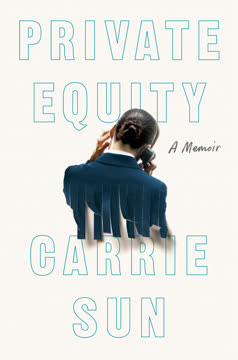
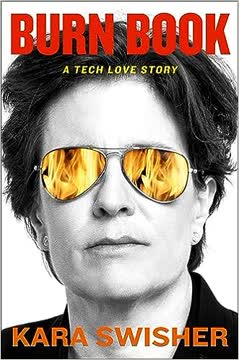

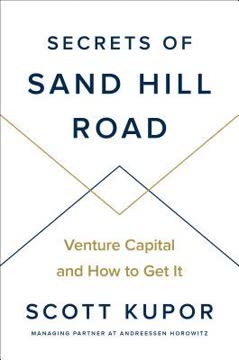
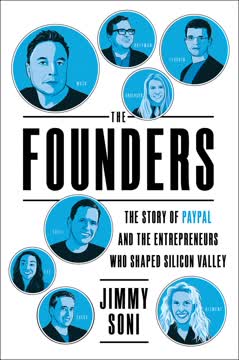
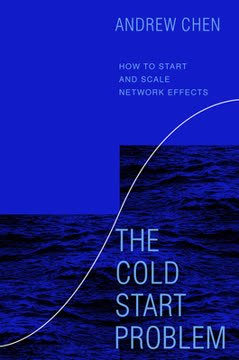
Download PDF
Download EPUB
.epub digital book format is ideal for reading ebooks on phones, tablets, and e-readers.
